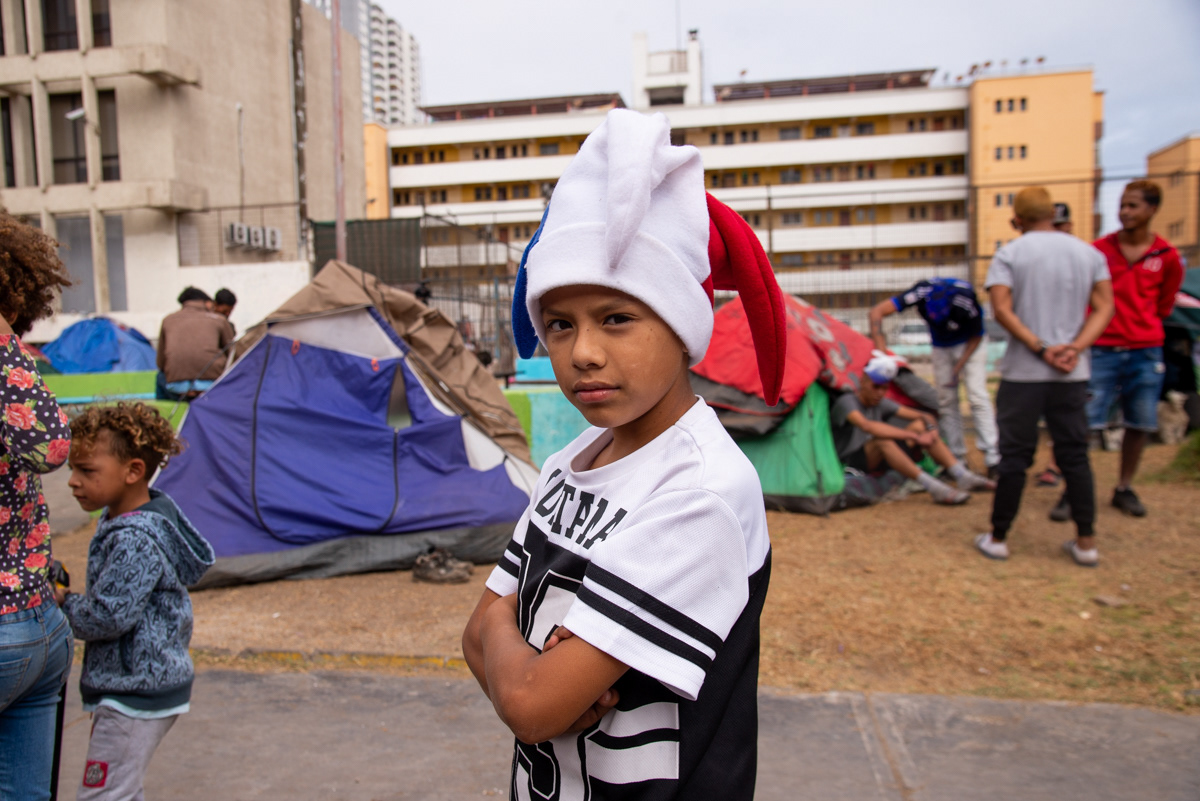In Chile, migration has grown dramatically in the last 15 years. Before 2000, it was very rare to see an Afro-descendant or simply people from other countries; except in the north, where transit between Peru, Bolivia, and Chile is common, the rest of the country had remained quite alien to the other countries of the continent and the world. This entails an extra problem to the migratory problems that most countries are currently suffering, that of opening their own customs to those of other people. From being a very closed and culturally isolated country, suddenly, we have been faced with a new cosmopolitan reality that not many, especially older people, are able to handle in a very good way.
At the moment, the biggest problem is in the north of the country, where illegal crossings are easier and the weather is better for living without resources. The north is also the bridge to the rest of the continent.Most Venezuelan and Colombian migrants have arrived in poor conditions, crossing the desert on foot and often settling in the streets or squares of the cities. Many of them have managed to find work and improve their condition with the help of international organizations, others, however, have not been so lucky and continue to spend the night in illegal camps set up in squares, streets, and beaches.
The lack of organization and tools of the government of the day to face this migratory process has taken the coexistence of migrants and Chileans to the limit, with tragic, extremist, and incoherent results, such as evicting migrants who have set up camp in a square to keep them in the street or simply attacking them and burning their things in the street.
----------------------------
En Chile la migración ha crecido de manera vertiginosa en los últimos 15 años. Antes del 2000 era muy extraño ver un afrodesendiente o simplemente personas de otros países; salvo en el norte que el tránsito entre Perú, Bolivia y Chile es habitual, el resto del país se había mantenido bastante ajeno a los demás países del continente y del mundo. Esto conlleva un problema extra a los problemas migratorios que están sufriendo actualmente la mayoría de los países, el de abrir las costumbres propias a las de otras personas; de ser un país muy cerrado y aislado culturalmente, de pronto, nos hemos visto frente a una nueva realidad cosmopolita que no muchos, sobre todo la gente de mayor edad, es capaz de llevar de muy buena manera.
Actualmente el mayor problema se concentra en el Norte del país, donde es más fácil cruzar por pasos ilegales y el clima es más ameno para sobrevivir sin recursos, además de ser el puente hacía el resto del continente. En su mayoría migrantes venezolanos y colombianos han llegado en paupérrimas condiciones, cruzando el desierto a pie e instalándose muchas veces en las calles o plazas de las ciudades, muchos de ellos han logrado conseguir trabajo y mejorar su condición con ayuda de organizaciones internacionales, otros, sin embargo, no han tenido esa suerte y siguen pernoctando en campamentos ilegales levantados en plazas, calles y playas.
La falta de organización y de herramientas del gobierno de turno para hacer frente a este proceso migratorio ha llevado la convivencia de migrantes y chilenos al límite, con trágicos, extremistas e incoherentes resultados, como desalojar a los migrantes que han armado su campamento en una plaza para que queden en la calle o simplemente atacarlos y quemar sus cosas en la vía pública.
------------------------------------------------------------------------------------------------------------------------
Illegal border crossings occur at Colchane, a town located in the mountain range at an altitude of 3,702 meters, where strong winds blow and temperatures can reach -10°C at night.
----------------------------
Cruce ilegal por la frontera de Colchane, pueblo hubicado en la cordillera a 3.702 metros de altitud, donde corren muy fuertes vientos y la temperatura en la noche pueda alcanzar hasta los -10°C





Colchane police station, where they receive basic aid, water, and an emergency kit with food, diapers, and other necessary items.
----------------------------
Comisaría de Colchane dónde reciben ayuda básica, agua y un kit de emergencia, con comida, pañales y otras cosas necesarias.






Road to Iquique from Colchane, 240 km on foot
----------------------------
Camino a Iquique desde Colchane, 240 kilometros a pie




Inside Iquique, the biggest migrant camp is located at Plaza Brasil.
----------------------------
Plaza Brasil, lugar donde se encuentra el campamento más grande de migrantes en Iquique.






















Iquique Beach is also a place where migrants who are homeless sleep at night.
----------------------------
Playa de Iquique, lugar donde también pernoctan migrantes sin casa









